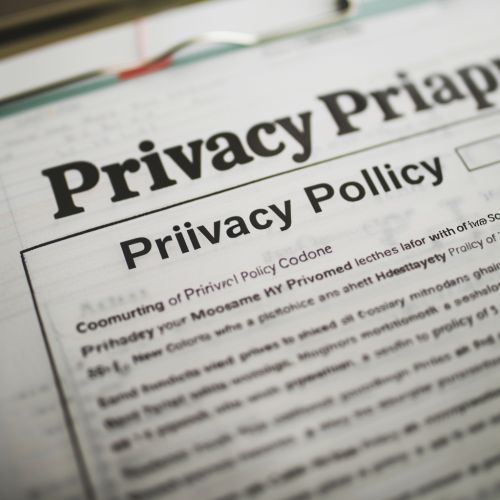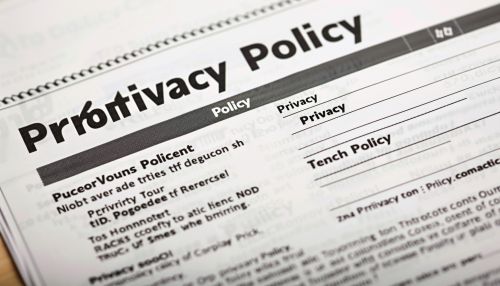Privacy Policy
Overview
A privacy policy is a legal document that discloses some or all of the ways a party gathers, uses, discloses, and manages a customer's data. It fulfills a legal requirement to protect a customer or client's privacy. Personal information can be anything that can be used to identify an individual, including but not limited to a person's name, address, date of birth, marital status, contact information, ID issue, and expiry date, financial records, credit information, medical history, where one travels, and intentions to acquire goods and services. In the case of a business, it is often a statement that declares a party's policy on how it collects, stores, and releases personal information it collects. It informs the client what specific information is collected, and whether it is kept confidential, shared with partners, or sold to other firms or enterprises.
Legal Requirements
Privacy policies are required by law in many jurisdictions, most notably in the European Union and within the United States in California. The legal requirements of privacy policies are evolving as the regulatory landscape changes. For example, the General Data Protection Regulation (GDPR) in the EU has specific requirements for what must be included in a privacy policy, including how data is collected, stored, and used, as well as any third-party access to the data. In the United States, the California Consumer Privacy Act (CCPA) has similar requirements, but also includes specific rights for consumers, such as the right to know what personal information is being collected and the right to opt out of the sale of personal information.


Elements of a Privacy Policy
A comprehensive privacy policy should include several key elements. First, it should identify the entity that is collecting personal information. This could be a company, a website, or an app. It should also explain what information is being collected, and how that information is being collected. This could include information that is directly provided by the user, such as name and email address, as well as information that is collected automatically, such as IP address and browsing history.
The policy should also explain how the collected information is being used. This could include a variety of uses, such as improving the user experience, marketing purposes, or sharing with third-party partners. The policy should also describe how the information is stored and protected. This could include details about encryption, security protocols, and data retention policies.
Finally, the policy should explain the user's rights in relation to their personal information. This could include the right to access their information, the right to correct inaccuracies, the right to delete their information, and the right to object to certain uses of their information.
Importance of Privacy Policies
Privacy policies are crucial for protecting user privacy and ensuring compliance with privacy laws and regulations. They provide transparency about how personal information is collected, used, and shared, which helps to build trust with users. They also provide a legal basis for processing personal information, which is a requirement under many privacy laws.
Moreover, privacy policies can help to prevent legal disputes and potential fines. By clearly stating how personal information is handled, companies can avoid misunderstandings and potential legal action from users. In addition, many privacy laws impose hefty fines for non-compliance, so having a comprehensive privacy policy can help to avoid these penalties.
Challenges and Criticisms
Despite their importance, privacy policies have been criticized for being too long, complex, and difficult to understand. Many users do not read privacy policies, and those who do often do not fully understand them. This has led to calls for more user-friendly privacy policies, including the use of plain language, visual aids, and interactive features.
Another challenge is ensuring that privacy policies are up-to-date and reflect current practices. As companies evolve and change, their privacy practices may also change. Therefore, it is important to regularly review and update privacy policies to ensure they accurately reflect current practices.
